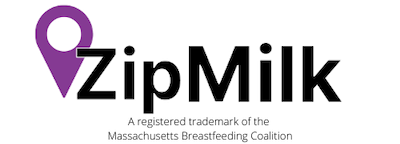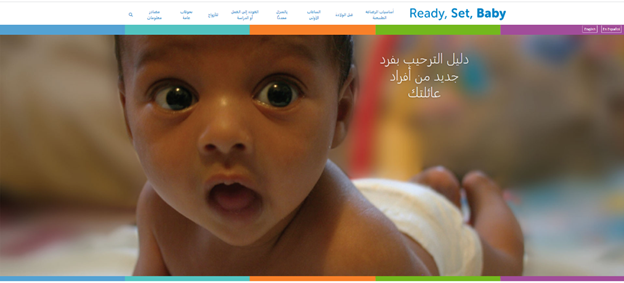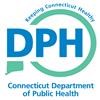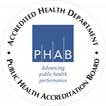It's Worth It Newsletter Spring 2022

Welcome to the Spring 2022 edition of the Connecticut Department of Public Health's (DPH) Breastfeeding: It's Worth It! eNewsletter!
This eNewsletter is produced in collaboration with a variety of stakeholders with funding from the Centers for Disease and Control and Prevention’s (CDC) State Physical Activity and Nutrition (SPAN) Program. DPH is funded by SPAN to implement breastfeeding/chestfeeding promotion and support activities in healthcare, communities and workplaces through 2023.
This eNewsletter is produced in collaboration with a variety of stakeholders with funding from the Centers for Disease and Control and Prevention’s (CDC) State Physical Activity and Nutrition (SPAN) Program. DPH is funded by SPAN to implement breastfeeding/chestfeeding promotion and support activities in healthcare, communities and workplaces through 2023.
COVID-19 Antibodies Passed to Infants Through Breast Milk of Vaccinated Mothers
Ground breaking research from the UMass Amherst Breastmilk Research Lab has shown that lactating parents who receive either of the mRNA COVID-19 vaccines (Pfizer-BioNTech or Moderna) pass antibodies to their infants through their milk. This confirms previous studies that showed antibodies were present in breast/human milk, and is significant because it confirms that the antibodies are passed on to infants who are developing passive immunity to the SARS-CoV-2 virus. The antibodies were detected in infants regardless of their age. Researchers also noted that infants of women who felt sick following vaccination had higher levels of antibodies in their stool samples. Read the UMass press release or about the study in the Obstetrics & Gynecology article.
Pregnant or lactating parents and their health providers with questions about the risks and benefits of COVID-19 vaccines can access free expert support through MotherToBaby CT. MotherToBaby CT also provides information on the risks and safety of medications and substances. Contact MotherToBaby CT at [email protected] or 860-679-6199.
You can also follow the national MotherToBaby website for information related to COVID-19: https://mothertobaby.org/fact-sheets/covid-19/.
Pregnant or lactating parents and their health providers with questions about the risks and benefits of COVID-19 vaccines can access free expert support through MotherToBaby CT. MotherToBaby CT also provides information on the risks and safety of medications and substances. Contact MotherToBaby CT at [email protected] or 860-679-6199.
You can also follow the national MotherToBaby website for information related to COVID-19: https://mothertobaby.org/fact-sheets/covid-19/.
Healthcare
Ready, Set, Baby! Translated to Arabic!
DPH, in partnership with the Carolina Global Breastfeeding Institute (CGBI) would like to invite you to the launch of the Ready, Set, Baby! website in Arabic, https://arabic.readysetbabyonline.com/.
This is the latest installment of the Ready, Set, Baby! webpage made possible through funding from the Centers for Disease Control and Prevention (CDC).
The English and Spanish versions of the Ready, Set, Baby! webpage were launched in 2020 and 2021, respectively.
DPH, in partnership with the Carolina Global Breastfeeding Institute (CGBI) would like to invite you to the launch of the Ready, Set, Baby! website in Arabic, https://arabic.readysetbabyonline.com/.
This is the latest installment of the Ready, Set, Baby! webpage made possible through funding from the Centers for Disease Control and Prevention (CDC).
The English and Spanish versions of the Ready, Set, Baby! webpage were launched in 2020 and 2021, respectively.
Community Support

ZipMilk - Find lactation help near you!
For parents who are looking for a little help, enter a zip code and select the type of assistance needed. There are IBCLCs, free support groups, health professionals, and a variety of websites listed with a focus on breastfeeding support. www.zipmilk.org
Providers, don’t forget to sign up for ZipMilk! Fill out this quick form: https://www.zipmilk.org/providers/new.
For parents who are looking for a little help, enter a zip code and select the type of assistance needed. There are IBCLCs, free support groups, health professionals, and a variety of websites listed with a focus on breastfeeding support. www.zipmilk.org
Providers, don’t forget to sign up for ZipMilk! Fill out this quick form: https://www.zipmilk.org/providers/new.
Share Your Story
We want to hear from everyone who has a breastfeeding (It’s Worth It!) story: Parents (moms, dads, and those who identify as either or more), grandparents, health providers, clinical professionals, employers and policy makers. Even though many families face breastfeeding challenges, with community support they can overcome those challenges and thrive. Like many moms we have talked to over the years, "it’s not always easy, but breastfeeding- It’s Worth It!" Your personal story can make a difference to another family. We are in this together and there is a community in Connecticut of families who can encourage each other. Submit your stories here (https://www.itsworthitct.org/share-your-story.html)
We want to hear from everyone who has a breastfeeding (It’s Worth It!) story: Parents (moms, dads, and those who identify as either or more), grandparents, health providers, clinical professionals, employers and policy makers. Even though many families face breastfeeding challenges, with community support they can overcome those challenges and thrive. Like many moms we have talked to over the years, "it’s not always easy, but breastfeeding- It’s Worth It!" Your personal story can make a difference to another family. We are in this together and there is a community in Connecticut of families who can encourage each other. Submit your stories here (https://www.itsworthitct.org/share-your-story.html)
Worksites & Child Care
CBIA Highlights the Importance of Continuing to Support Lactating Employees Through the Pandemic
The Connecticut Business and Industry Association (CBIA) has shared two important FAQs with members regarding lactation accommodations in the workplace. The first is an update regarding employee lactation accommodations during the pandemic. Employers are required to provide a reasonable break time and a location (not a bathroom) for employees to pump, even during the pandemic. Employers are encouraged to review this information on the CBIA HR Hotline page: https://www.cbia.com/news/hr-safety/hr-hotline-accommodations-employee-nursing/.
The second FAQ update provided to CBIA members is in support of adopting well written lactation accommodation policy. Readers of this newsletter are familiar with the many benefits an employee lactation support program provides to both employers AND employees. The FAQ reviews the importance of solidifying the program with an organizational policy to ensure that all employees can access the accommodations. Review the FAQ on CBIA’s FAQ page: https://www.cbia.com/resources/hr-safety/issues-laws/faq-ct-lactation-accommodation-policy/.
Become a Breastfeeding Friendly Worksite!
If your employer has a lactation accommodation policy and wants to apply for the CT Breastfeeding Friendly Recognition, please apply here: Breastfeeding Friendly Worksite. The application is online and easier than you may think. Contact the CT Breastfeeding Coalition (CBC) if you have any questions, at [email protected] or 203-699-MILK (6455).
The Connecticut Business and Industry Association (CBIA) has shared two important FAQs with members regarding lactation accommodations in the workplace. The first is an update regarding employee lactation accommodations during the pandemic. Employers are required to provide a reasonable break time and a location (not a bathroom) for employees to pump, even during the pandemic. Employers are encouraged to review this information on the CBIA HR Hotline page: https://www.cbia.com/news/hr-safety/hr-hotline-accommodations-employee-nursing/.
The second FAQ update provided to CBIA members is in support of adopting well written lactation accommodation policy. Readers of this newsletter are familiar with the many benefits an employee lactation support program provides to both employers AND employees. The FAQ reviews the importance of solidifying the program with an organizational policy to ensure that all employees can access the accommodations. Review the FAQ on CBIA’s FAQ page: https://www.cbia.com/resources/hr-safety/issues-laws/faq-ct-lactation-accommodation-policy/.
Become a Breastfeeding Friendly Worksite!
If your employer has a lactation accommodation policy and wants to apply for the CT Breastfeeding Friendly Recognition, please apply here: Breastfeeding Friendly Worksite. The application is online and easier than you may think. Contact the CT Breastfeeding Coalition (CBC) if you have any questions, at [email protected] or 203-699-MILK (6455).
Congratulations to these new Breastfeeding Friendly Worksite designees
Family Life Education, Hartford
iHeart Media, Hartford
Urban League of Hartford
Congratulations to these new Breastfeeding Friendly Worksite designees
Family Life Education, Hartford
iHeart Media, Hartford
Urban League of Hartford
Become a Breastfeeding Friendly Child Care Provider!
Child care providers are a much needed support to human milk feeding families. Does your child care provider go above and beyond? We would love to recognize them with a Breastfeeding Friendly Recognition. Apply here: Breastfeeding Friendly Child Care. Providers with employees will also be recognized as Breastfeeding Friendly Worksites through the same application process.
Child care providers who are interested in learning more about becoming breastfeeding friendly can receive free support through the Go NAPSACC partnership. The CT RESC Alliance and CBC Coalition are available to provide free training and technical assistance. There are also educational and financial incentives available. Learn more here: Go NAPSACC
Become a Breastfeeding Friendly Child Care Provider!
Child care providers are a much needed support to human milk feeding families. Does your child care provider go above and beyond? We would love to recognize them with a Breastfeeding Friendly Recognition. Apply here: Breastfeeding Friendly Child Care. Providers with employees will also be recognized as Breastfeeding Friendly Worksites through the same application process.
Child care providers who are interested in learning more about becoming breastfeeding friendly can receive free support through the Go NAPSACC partnership. The CT RESC Alliance and CBC Coalition are available to provide free training and technical assistance. There are also educational and financial incentives available. Learn more here: Go NAPSACC
Congratulations to these new Breastfeeding Friendly Child Care designees
Honey Bear Learning Center, Stratford
Rev. Peggy Joseph, Stratford Family Child Care provider
Giselle Lacan, Stratford Family Child Care provider
Lara DeForge, Stafford Springs Family Child Care provider
Honey Bear Learning Center, Stratford
Rev. Peggy Joseph, Stratford Family Child Care provider
Giselle Lacan, Stratford Family Child Care provider
Lara DeForge, Stafford Springs Family Child Care provider
Research Articles & Resources
Reasons for Infant Formula Supplementation in US Hospitals
“A nation-wide study on the common reasons for infant formula supplementation among healthy, term, breastfed infants in US hospitals” is a recent article published in the Maternal & Child Nutrition journal, partially supported by the National Association of County and City Health Officials through the Reducing Disparities in Breastfeeding through Continuity of Care Project through funding from the CDC.
In-hospital infant formula supplementation of breastfed infants reduces breastfeeding duration, yet little is known about common reasons for infant formula supplementation. This study examined the three most common reasons for in-hospital infant formula supplementation of healthy, term, breastfed infants in the US reported by hospital staff: medical indications (70.0%); maternal request/preference/feelings (55.9%); and lactation management-related issues (51.3%). Read the full article here.
Inpatient Breastfeeding Education, Summarized from Breastfeeding Medicine
Breastfeeding Medicine published an article titled "A Mixed-Methods Examination of Inpatient Breastfeeding Education Using a Human Factors Perspective" that highlights the results of a study examining postpartum, inpatient mother-lactation educator breastfeeding education, resulting perceptions, and patient-reported worries and outcomes. The authors found that the human factors perspective is relevant to barriers in current breastfeeding education and could be useful in designing interventions.
Remote Provision of Breastfeeding Support and Education: Systematic Review and Meta-analysis
This analysis showed that remotely provided breastfeeding support significantly reduced the risk of women stopping exclusive breastfeeding at 3 months by 25%. This demonstrates that remote interventions can be effective for improving exclusive breastfeeding at 3 months, but the certainty of the evidence is low. To read the full article, click here.
Issue Brief on 'Great Resignation' and Paid Leave, Summarized by NPWF
The National Partnership for Women and Families (NPWF) released an issue brief titled "The Great Resignation Shows Great Need for Paid Leave." The publication examines the connection between the ways that paid leave allows workers, especially female workers, to stay at their jobs.
CERPs & CEUs Resource List
The CBC maintains a list of free and low-cost continuing education opportunities for lactation professionals. These webinars and courses are available on-demand and can be completed online in the comfort of your home or office. A variety of community and clinical topics are available here: https://www.breastfeedingct.org/continuing-education.html.
“A nation-wide study on the common reasons for infant formula supplementation among healthy, term, breastfed infants in US hospitals” is a recent article published in the Maternal & Child Nutrition journal, partially supported by the National Association of County and City Health Officials through the Reducing Disparities in Breastfeeding through Continuity of Care Project through funding from the CDC.
In-hospital infant formula supplementation of breastfed infants reduces breastfeeding duration, yet little is known about common reasons for infant formula supplementation. This study examined the three most common reasons for in-hospital infant formula supplementation of healthy, term, breastfed infants in the US reported by hospital staff: medical indications (70.0%); maternal request/preference/feelings (55.9%); and lactation management-related issues (51.3%). Read the full article here.
Inpatient Breastfeeding Education, Summarized from Breastfeeding Medicine
Breastfeeding Medicine published an article titled "A Mixed-Methods Examination of Inpatient Breastfeeding Education Using a Human Factors Perspective" that highlights the results of a study examining postpartum, inpatient mother-lactation educator breastfeeding education, resulting perceptions, and patient-reported worries and outcomes. The authors found that the human factors perspective is relevant to barriers in current breastfeeding education and could be useful in designing interventions.
Remote Provision of Breastfeeding Support and Education: Systematic Review and Meta-analysis
This analysis showed that remotely provided breastfeeding support significantly reduced the risk of women stopping exclusive breastfeeding at 3 months by 25%. This demonstrates that remote interventions can be effective for improving exclusive breastfeeding at 3 months, but the certainty of the evidence is low. To read the full article, click here.
Issue Brief on 'Great Resignation' and Paid Leave, Summarized by NPWF
The National Partnership for Women and Families (NPWF) released an issue brief titled "The Great Resignation Shows Great Need for Paid Leave." The publication examines the connection between the ways that paid leave allows workers, especially female workers, to stay at their jobs.
CERPs & CEUs Resource List
The CBC maintains a list of free and low-cost continuing education opportunities for lactation professionals. These webinars and courses are available on-demand and can be completed online in the comfort of your home or office. A variety of community and clinical topics are available here: https://www.breastfeedingct.org/continuing-education.html.
More To Come
IBCLC Mentor and Mentee Opportunities
There has been considerable discussion in various settings about the need for IBCLC mentors. The SPAN grant partners are working on developing a training for potential mentors and a network for potential mentees and prospective IBCLCs who are Black, Indigenous and People of Color as well as LGBTQ, transgender and men. We are working together to support folks, who have been historically marginalized, to enter the profession and provide support in their communities. Representation matters! If you are interested in the mentor or mentee networks please contact [email protected] or [email protected], or call/text the CBC at 203-699-MILK (6455).
There has been considerable discussion in various settings about the need for IBCLC mentors. The SPAN grant partners are working on developing a training for potential mentors and a network for potential mentees and prospective IBCLCs who are Black, Indigenous and People of Color as well as LGBTQ, transgender and men. We are working together to support folks, who have been historically marginalized, to enter the profession and provide support in their communities. Representation matters! If you are interested in the mentor or mentee networks please contact [email protected] or [email protected], or call/text the CBC at 203-699-MILK (6455).
If you have received this link from a friend or colleague, please subscribe below:
The Connecticut State Physical Activity and Nutrition Program is made possible with funding from the Centers for Disease Control and Prevention (CDC). The views expressed in this eBulletin do not necessarily reflect the official policies of the CDC or imply endorsement by the U.S. Government. Learn more about the State Physical Activity and Nutrition Program at https://www.cdc.gov/nccdphp/dnpao/.




